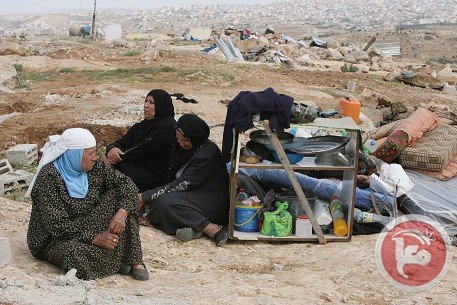Tag: Hebron
-
Bedouin hamlet destroyed for 3rd time
5 May 2011 | Maan News Women of the Bedouin herding hamlet of Khirbet Amniyr sat on the earth and watched Israeli forces demolish their 12 tent homes for the third time on Thursday morning. The women said they were waiting for the soldiers to leave so they could rebuild their tent homes and once…
-
Beit Ula names garden after slain Italian activist
25 April 2011 | Ma’an News Agency Hebron’s Youth Development Association re-named a small garden west of the city after murdered Italian activist Vittorio Arrigoni in a Sunday ceremony. Beit Ula Mayor Rateb Al-Omla presided over the event, thanking the development association for its initiative in commemorating Arrigoni, who was murdered in Gaza City on…
-
Unprovoked settler attack and military house invasion in Shuhada Street, Hebron
25 April 2011 | International Solidarity Movement At approximately 11pm on Sunday 24, two Palestinians were physically beaten, one also attacked with pepper spray, by Israeli settlers in Hebron. Shortly afterwards, a reported 20 Israeli soldiers forcibly entered a house in Shuhada Street and ordered all under 16s out into the street. According to a…

